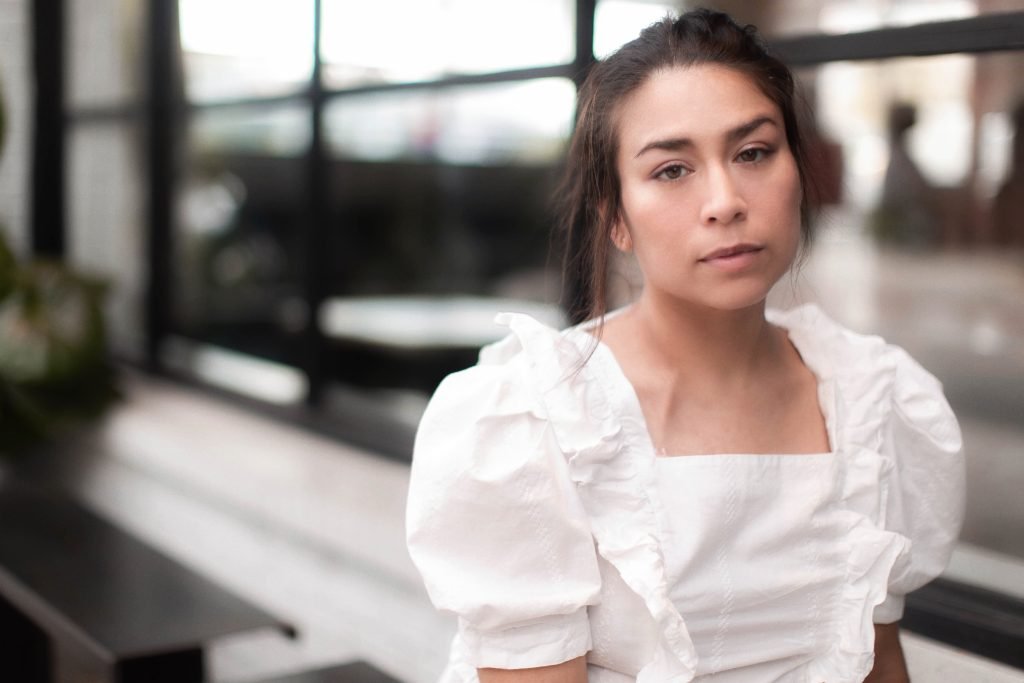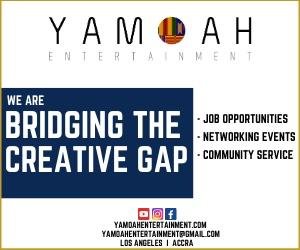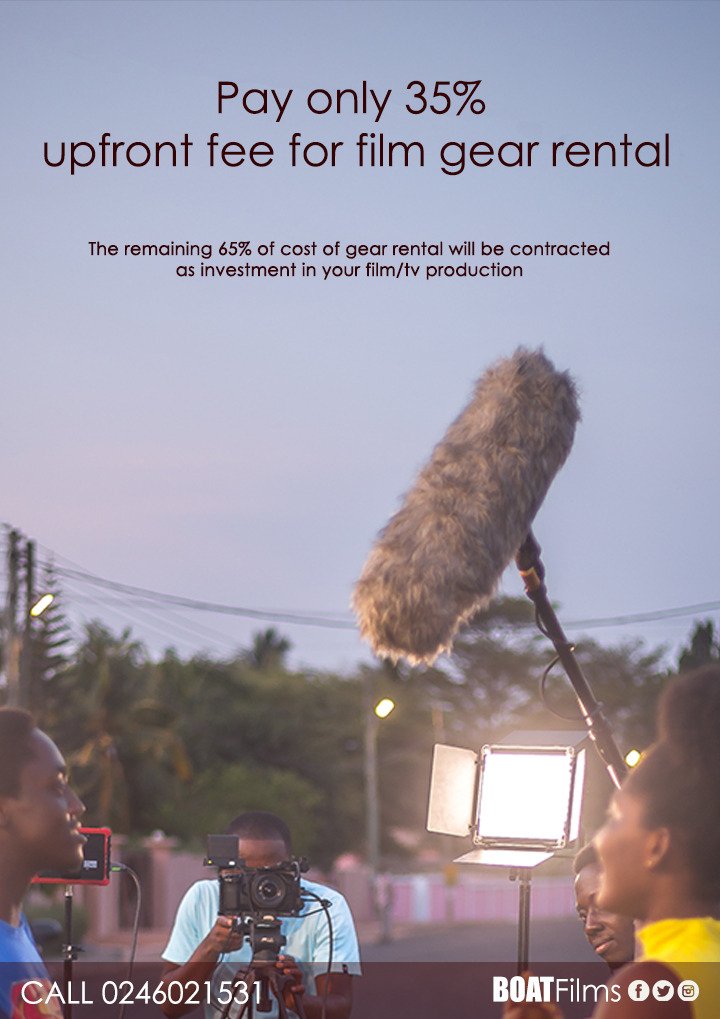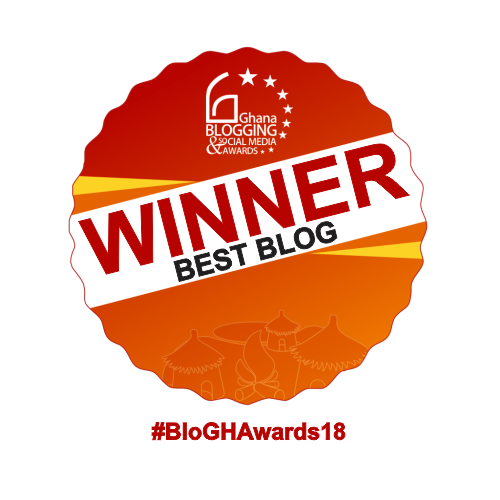Interviews
Reimagining Identity: Evelyn Lorena’s Journey with Her Short film “Gabriela”.
Published
2 years agoon
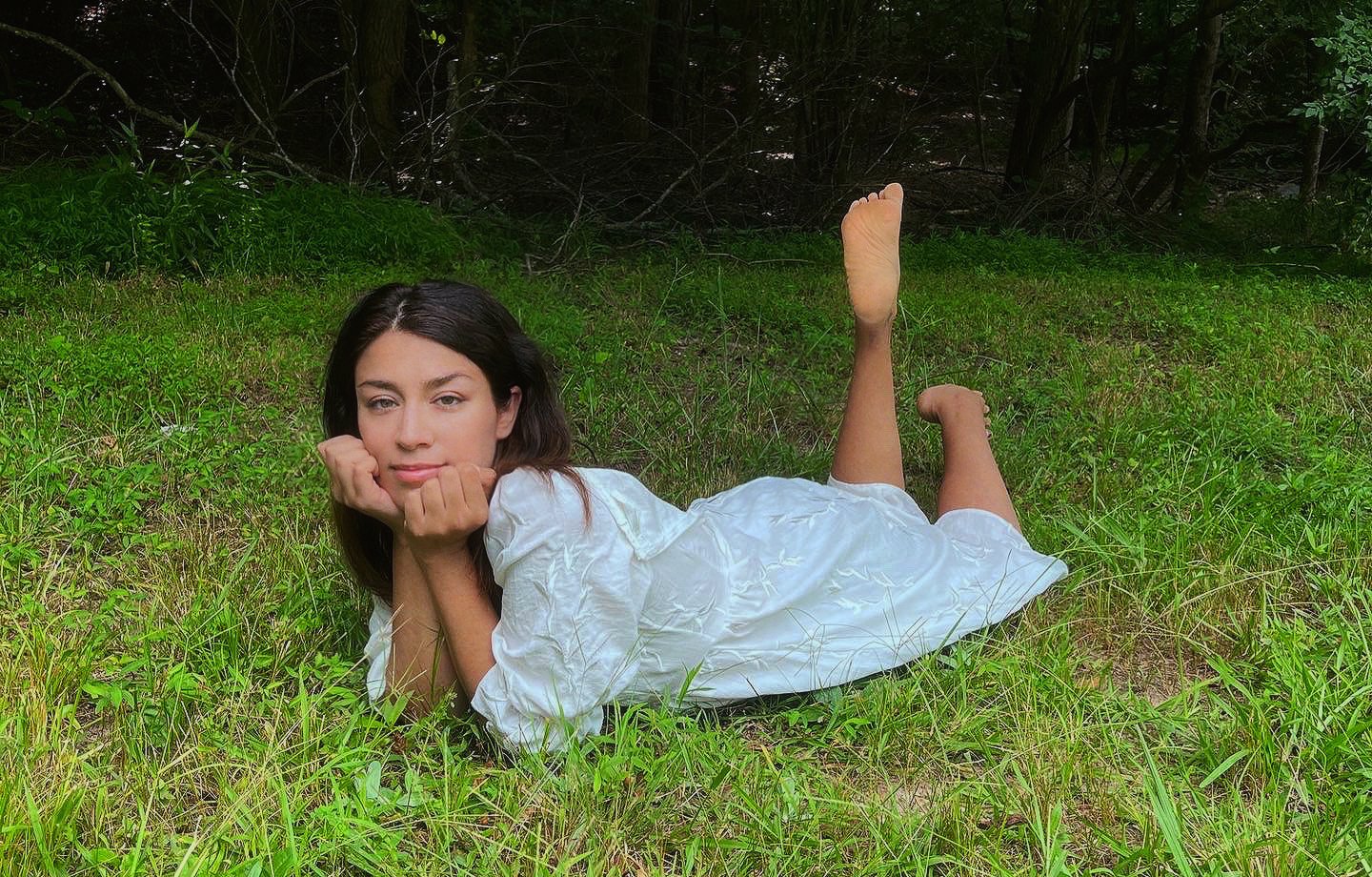
In a cinematic landscape where Latino characters often serve as mere plot devices, filmmaker Evelyn Lorena sets out to redefine the narrative. In an exclusive interview with GhMovieFreak.com, Lorena shares her inspiration behind “Gabriela,” a film that delves deep into the complexities of identity, freedom, and self-acceptance.
Through her lens, Lorena aims to challenge stereotypes and elevate Latina characters beyond the confines of traditional storytelling, inviting audiences to explore the universal human experience embodied by her protagonist.
1. What initially inspired you to tell Gabriela’s story?
Evelyn Lorena:
I’ve begun to see that one of my M.O.s as an artist— and this wasn’t necessarily purposeful, just something I’ve noticed as a trend for myself — is expanding the perceptions of what a Latina is in society. Oftentimes, I feel like Latinos in media are used as a tool to serve the story rather than fully explore their humanity, and it is what causes others to dehumanize them or view them as second-class citizens when, deep down, they are no different from you and me in their hopes and desires. That’s changing now, but there are still ways to go. Of course, there are immediate cultural differences between all of us, but those things are sometimes temporary and shifting, but the human condition exists in every one of us, particularly in the question of “Who Am I?” which Gabriela grapples with. In “Gabriela” I wanted to tackle those things in a (hopefully) sophisticated way, playing on a stereotype and revealing what’s truly underneath.
2. How did your personal experiences with identity influence the development of the film’s narrative?
Evelyn Lorena:
I’ve struggled a lot in my life to feel a sense of freedom in the world, my own body, etc .. I’m sure any woman can relate to that, but I felt very alone through some of it because at the same time, I was in spaces that didn’t feel like home, so it added to the alienation. But, slowly I’ve come to realize it isn’t what’s out there that makes you feel at home, though it can help, it’s how you ultimately feel about yourself. I certainly wanted to relay that sentiment in “Gabriela” — the power of self-acceptance.
3. Can you share more about the significance of the setting, particularly the Southern American backdrop, in Gabriela’s journey?
Evelyn Lorena:
I feel America has a very distinct idea of Southern Culture. I’m not sure if that has to do with media portrayals or just how people interpret the culture when they visit. But, I often feel it neglects actual truths. Don’t get me wrong, certain things can be very true, like the gun culture in the South, but I think there isn’t much talk about how Latinos are such a large part of the fabric here now, whether in the workforce or in culture itself. My hometown alone has so many Latino community hubs. We are a growing population and it’s also the creation of a new melting pot I think. Essentially, I wanted to show a Latina in the south.
4. The theme of personal freedom is central to the film. Could you elaborate on how this theme is explored throughout the story?
Evelyn Lorena:
In my experience, people are consistently looking for something outside themselves to grant them some kind of freedom or salvation. It’s a noble pursuit in some ways because in that search you realize, “it” was never there, to begin with. I had a deeply intense near-death experience, so forgive me if I tend to get philosophical, but it impacted my life to view things so differently than I had before. Not to diminish that journey or even who I was before, but I felt so chaotic and lost. Searching. And I feel that what “Gabriela” is doing in the film: swimming … searching for something. Even grasping onto certain ideas of herself she thinks will allow her to escape her own self-loathing. In writing to her, I always felt for her — this self-loathing she had. I hate calling it that because it’s just a byproduct of just wanting to be free — but unfortunately that’s what it is. We as humans do that sometimes. We think the grass is greener on the other side rather than seeing the harvest that’s in front of us, and we create self-loathing in the process.
5. You have talked about facing health issues during production. How did this experience shape your perspective on filmmaking and storytelling?
Evelyn Lorena:
Absolutely. Sometimes I feel like a grandma since so much of how I talk or create now comes from this philosophical place. Haha. Or that in the aftermath I can’t go out in the same way with friends, things like that. (But, if it means I can see the world in this deeper light, I’m truly grateful for that. In the end, who cares, right?) I feel like in the moment, it made shooting physically challenging in some ways. Particularly in finding the right people to craft and stunt the water sequences so they looked real, but overall, I think the experience with my health showed me how much of life is fragile, and how much we do have to appreciate. Hopefully, by the end of the story, Gabriela’s story is infused with a little bit of that too.
6. In what ways did your Mayan heritage influence the portrayal of Gabriela’s cultural identity in the film?
Evelyn Lorena:
For most of my life, and I assume from the stories I was told by my parents, the racism they encountered when they moved to the South motivated a lot of my parent’s behaviour, particularly in regard to assimilation. For most of my life, I lived in the mystery of my Mayan heritage. I’ve found that oftentimes times this is the case for many as well. The erasure of the culture. I wanted in some ways to portray the realness of that erasure, but find ways to reconnect to the culture through her mother and the water. I personally began to awaken to my heritage more on my trips back to Guatemala and prying open my parents about it. But it also hit me particularly hard when I was going through my health crisis — it’s hard to explain, besides it being a visceral understanding. Deeply understanding the ways of your people and moving more towards that in life and in lifestyle. Understanding that on many levels, you are a land protector and you stand on the shoulders of those before you. And I feel like “Gabriela” can begin to understand that for herself too: the re-discovery of herself is also the re-discovery of her heritage.
7. The film’s narrative focuses on Gabriela’s inner life and character. How were you able to effectively direct and also deliver well as the character Gabriela in that regard?
Evelyn Lorena:
I get asked this question a lot! The answer is I don’t know. It was something that happened so fast — going from directing to then deciding to cast myself, then shooting. It was done a lot on instinct because it had to be. I often find it difficult to describe any creative process, besides, “oh it just happens” because there’s so much truth to that! It really does. How do you describe intuition or instinct or even emotion? I don’t know that there is a language for it. I mean, I guess on a practical level, it took a lot of planning and support from Maris, Isabelle, and Xenia. And, having written the character a lot of the character work for the acting side was from that.
8. Alma, Gabriela’s mother, plays a significant role in the story. What themes does her character represent, and how does she contribute to Gabriela’s growth?
Evelyn Lorena:
I wanted the centrepiece of the film to be this relationship because ultimately connecting with her mother is connecting with who she is, and her heritage. It’s interesting because you think the story is going to be about her pursuing swimming or that we’re watching some “downtrodden” person go through it — I don’t think of her that way, but I’m saying if people were in judgment mode — only to realize it’s not about that at all. She’s on her way to self-discovery. Life is so crazy like that too. You think you’re going one way and then you realize, wait this other thing was so much better and taught me so much more. I feel like she can finally see her mother that way. She can see Alma in a different light, and because of that, Gabriela can begin a different journey, perhaps one towards more self-acceptance.
9. The film aims to challenge stereotypes and expand perceptions of Latina characters. How well do you think this was captured in this film?
Evelyn Lorena:
How well? I’m not sure I’m not the audience! Haha. But, I can say that I did want to challenge those perceptions by throwing you into Gabriela and Alma’s life and wondering if you’re just going to watch some kind of downtrodden immigrant tale — which unfortunately is how those are often portrayed — but then, to pull you into her human story and inner life. I want people to see the vastness of who she is, of who any of us are really. It was important for me that the film not be solely held as a “Latino story” but a universal one — because otherwise what’s the point, right? Not to say that isn’t important. I want to see more Latino-focused stories too, but for this particular film, I felt it was important, in her humanization, that it transcends that in a certain way. Almost in the same way, she’s trying to transcend herself. I think we can all transcend our circumstances when we connect to the essence of who we are because then all of those exterior things stop mattering. We are not our circumstances. We are human beings and deserve to be seen that way.
10. What message or takeaway do you hope audiences will have after watching the film?
Evelyn Lorena:
I don’t want to limit the film to a certain message. But, I do hope the film can create more empathy overall for those that appear “other” to us.
11. Are there any specific scenes or elements of the film that hold personal significance to you as a filmmaker?
Evelyn Lorena:
I love the water sequences because they speak volumes, or the intent is to speak volumes, without having to say much. Language can get so limiting or messy and sometimes you just have to feel it or viscerally understand something, and I hope the water does that for the viewer. There is always this liberating feeling with water, at least for me, and I wanted to feel that. There is also an innate power to water — remember it can crush a city or break a rock. There is a mystery and vastness to water too, like a turbidity sometimes. I wanted to respect that power in the images we chose.
12. Looking back on the filmmaking process, given the chance to, what would you have added to or taken away from this film to make it better?
Evelyn Lorena:
Time. But, I guess everyone says that. But I’ve noticed I like to savour things and deeply understand things and that unfortunately takes time, and isn’t always conducive to the result-oriented systems we have in our world. But, no, other than that, it was a magical experience, even with the flaws, for so many reasons. The flaws make the film and the experience too. Making a film I’ve learned is also a spiritual experience, it affects all levels of our humanity. I had changed physically, spiritually, and mentally … all through the process of making this one thing. It’s crazy. I’m really grateful.
Wrapping up with Evelyn Lorena, it’s evident that “Gabriela” is more than just a film—it’s a journey of self-discovery, resilience, and the power of storytelling.
Through her personal experiences, Mayan heritage, and creative vision, Lorena has crafted a cinematic masterpiece that transcends cultural boundaries and speaks to the heart of what it means to be human. As audiences immerse themselves in Gabriela’s world, they’re not only invited to witness her story but also to reflect on their perceptions and prejudices.
In the end, “Gabriela” isn’t just a film, it’s a mirror that reflects the depth and richness of the human soul. And it’s a film that must be seen by many.
Second on my list of addictions is Movies.. the only thing I could possibly love more is my Dearest Waakye lol. Nothing else does a better job of reminding me that ANYTHING is possible with the right amount of effort. I have great eye for details and flaws in scripts. Shallow scripts bore me. I am an avid reader. Your everyday Mr Nice guy. Always the last to speak in a room full of smart people. Half Human, half Martian but full MOVIE FREAK.

